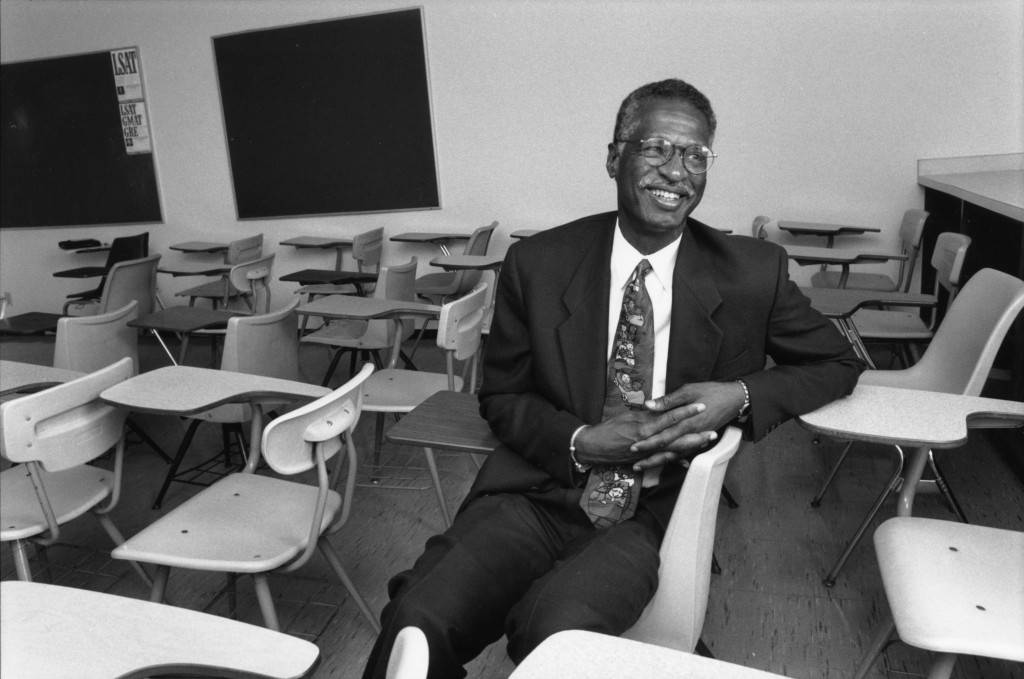Milwaukee attracted national attention, beginning in 1990, when it became the first city in the nation where elementary and high school students could enroll in private schools, using public money to support their education. The Wisconsin legislature had approved a law, signed by Governor Tommy G. Thompson, which allowed private school “vouchers.” Over the next quarter century, vouchers greatly changed the landscape of education in the city.
Supporters said vouchers would allow students choices in schooling comparable to what students from well-off homes had and this new option would lead to increased educational success. Opponents saw it as weakening the public school system and offering children education without adequate accountability.
With 337 participating students in seven non-sectarian schools in the fall of 1990, the Milwaukee Parental Choice Program started small. The legislature voted in 1995 to allow religious schools to participate. Three years later, the Wisconsin Supreme Court ruled in a 4 to 2 decision that it was constitutional to provide public money to religious schools in the form of voucher payments.[1] It was the first such decision by a court of that rank in the United States. The decision foreshadowed a 5 to 4 decision by the US Supreme Court in 2002 that was based on similar legal arguments.[2]
The use of vouchers grew quickly after the 1998 Wisconsin decision. Within five years, more than one hundred schools were participating and more than 11,000 children were using vouchers. In September 2016, more than 27,000 students used vouchers to attend about 120 private schools.[3]
There was relatively light regulation of voucher schools in their early years. Advocates said that parents would select good schools for their children and that parental choice was the only accountability needed. However, situations in the early to mid-2000s at some schools began attracting concern.[4] Several cycles of legislative action increased regulation of voucher schools, including requirements for stricter financial practices and a mandate that participating schools be accredited by independent organizations.[5]
Even as it set national precedents, the voucher program went largely unstudied from the mid-1990s to mid-2000s. Then, a combination of legislation and private philanthropic support initiated a broad five-year research project, led by the School Choice Demonstration Project at the University of Arkansas. In general terms, the resulting studies found that the achievement of voucher schools was about the same as the achievement of Milwaukee Public Schools students.[6] Several studies done separately concluded that students using voucher have higher graduation rates,[7] whereas others pointed to scores on state standardized tests as evidence that results for voucher students are not much different than results for public school students.[8]
The voucher program has allowed some parochial schools to stay open[9] and has kept the private school sector vibrant in Milwaukee. Meanwhile, Milwaukee Public Schools enrollment declined as voucher enrollment rose. Although the rise of school vouchers changed the Milwaukee school landscape greatly,[10] a quarter century after vouchers were offered, the hopes of advocates that they would bring substantial improvement in overall education success had not been fulfilled.
Footnotes [+]
- ^ Jackson v. Benson, decided June 10, 1998, last accessed June 6, 2018.
- ^ Zelman v. Simmons-Harris, 536 U.S. 639, decided June 27, 2002.
- ^ Milwaukee Parental Choice Program Membership and Payment History, in Total, 1990-91 to 2016-17, Wisconsin Department of Public Instruction, https://dpi.wi.gov/sites/default/files/imce/sms/pdf/MPCP_Sept%20_Payment_History_2016-17.pdf, information now available at https://dpi.wi.gov/sms/choice-programs/data/mpcp-historical, last accessed June 6, 2018.
- ^ Alan J. Borsuk and Sarah Carr, “Lessons from the Voucher Schools,” seven-part series, Milwaukee Journal Sentinel, June 2005, National Education Policy Center website, last accessed June 6, 2018.
- ^ Erin Richards, “Milwaukee’s Voucher Verdict,” American Prospect, January 12, 2017, last accessed June 6, 2018.
- ^ University of Arkansas, Department of Education Reform, School Choice Demonstration Project, last accessed June 6, 2018.
- ^ Paul E. Petersen, “Graduation Rates Higher at Milwaukee Voucher Schools,” EducationNext website, last accessed June 6, 2018.
- ^ Tom Kertscher, “No Evidence That Choice Students Outperform Public School Students, Mary Burke Says,” Politifact website, http://www.politifact.com/wisconsin/statements/2014/may/28/mary-burke/no-evidence-students-voucher-schools-perform-better/, now available at http://www.politifact.com/wisconsin/statements/2014/may/28/mary-burke/no-evidence-students-voucher-schools-perform-bette/, last accessed June 6, 2018.
- ^ Erin Richards, “Study: Vouchers Kept Milwaukee Catholic Parishes Open, but at a Cost to Religious Activity,” Milwaukee Journal Sentinel, February 14, 2017, last accessed June 6, 2018.
- ^ Richards, “Milwaukee’s Voucher Verdict.”
For Further Reading
Ford, Michael R. Consequences of Governance Fragmentation: Milwaukee’s School Voucher Legacy. Lanham, MD: Lexington Books, 2017.
Fuller, Howard, with Lisa Frazier Page. No Struggle, No Progress: A Warrior’s Life from Black Power to Education Reform. Milwaukee: Marquette University Press, 2014.
Holt, Mikel. Not Yet “Free at Last”: The Unfinished Business of the Civil Rights Movement—Our Battle for School Choice. Oakland, CA: ICS Press, 2000.
Miner, Barbara J. Lessons from the Heartland: A Turbulent Half-Century of Public Education in an Iconic American City. New York, NY: The New Press, 2013.
Nelsen, James K. Educating Milwaukee: How One City’s History of Segregation and Struggle Shaped Its Schools. Madison, WI: Wisconsin Historical Society Press, 2015.
Richards, Erin. “Milwaukee’s Voucher Verdict.” American Prospect, January 12, 2017.

0 Comments
Please keep your community civil. All comments must follow the Encyclopedia of Milwaukee Community rules and terms of use, and will be moderated prior to posting. Encyclopedia of Milwaukee reserves the right to use the comments we receive, in whole or in part, and to use the commenter's name and location, in any medium. See also the Copyright, Privacy, and Terms & Conditions.
Have a suggestion for a new topic? Please use the Site Contact Form.